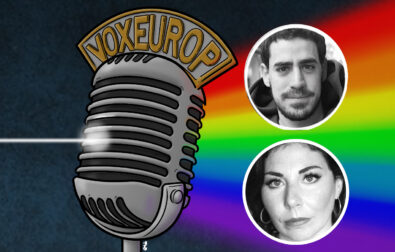In the Republic of Moldova, we have two demarcation lines, which make us the battleground for a clash of civilizations: an outer border, on the Prut River, separating Western European civilization from the Eurasian world; and an inner boundary, dividing citizens with a liberal-democratic vision from the "homo sovieticus" type.
The Republic of Moldova is the result of the implosion of the USSR in the early 1990s and the worldwide collapse of communism. The Moldovan ruling class was capable of dealing with these events only in the initial phases of the process, when the priority was independence. As time went on, they revealed that they were unable to establish the foundations for a new state. The landslide Communist victory in 2001 was a sign that reformist efforts had failed, and that a large part of the population had taken refuge in the nostalgic myths of a not-too-distant past.
Times have changed since the 20th century, when the iron curtain was impenetrable. The people of Moldova can no longer be cut off from European values. The Internet and the freedom to travel have been factors in convincing them of the advantages of the rule of law and the free market. The young generation is European, having gone to university in Romania or in the West. They support a new breed of political leaders.
Our society has split into two distinct cultural groups. On one side, we have Homo sovieticus – those who accepted the social comforts of totalitarian socialism. On the other, we have those who support the modernisation driven by European values. When the neo-Communists came to power, the incompatibility of these two paradigms was exacerbated, generating explosive tension.
These two camps and their relationship to one another are constantly evolving, and strongly influenced from outside. The political and economic power blocs on the continent – the European Union and the former Soviet space – are an expression not only of geopolitical rivalries, but also of the clash of mentalities, Western European and Eurasian.
Moldova hangs in the balance
The rioting on April 7 [following the disputed results of a general election held April 5] and the ensuing repression are not an attempted coup, but the expression of a clash of civilizations. The government strove to prove its legitimacy by clinging for dear life to the Soviet type of mentality: excessive and illegal use of force, an information war, an iron curtain on the Prut, censorship of the Western press. On the domestic front, the young elites are gradually being corrupted. The opposition believes that maintaining the old ruling class in power is a catastrophe.
The political events of last spring show that the communist power does not understand how deeply our society is divided. It sees only enemies to liquidate. But the class struggle has become a mentality struggle between those who want to wage the battle by civilized means, and those who are ready to use lies and violence to win it. The Communists were hoping to score a decisive victory by acting as both player and referee.
Nearly 300 years ago, the German emperor Frederick II of Prussia, known as Frederick the Great, had already understood that the two positions cannot be held at the same time. On an outing in the country, he saw a beautiful windmill: "If you do not sell me the mill, I will take it nevertheless, for I am the emperor," Frederick threatened the miller. The latter replied, with dignity, "That would be true, were there no judges in Berlin!" Frederick went on his way, impressed. In Moldova today, the emperor and the miller are equals, and the judge is awaiting the outcome of this spectacular clash of civilizations.
Was this article interesting?
Support us so that we can offer more of the same, keep it accessible to all, and stay independent!











